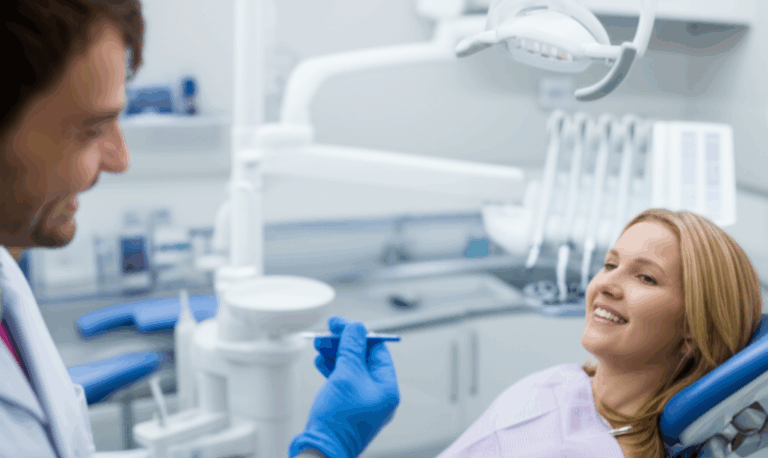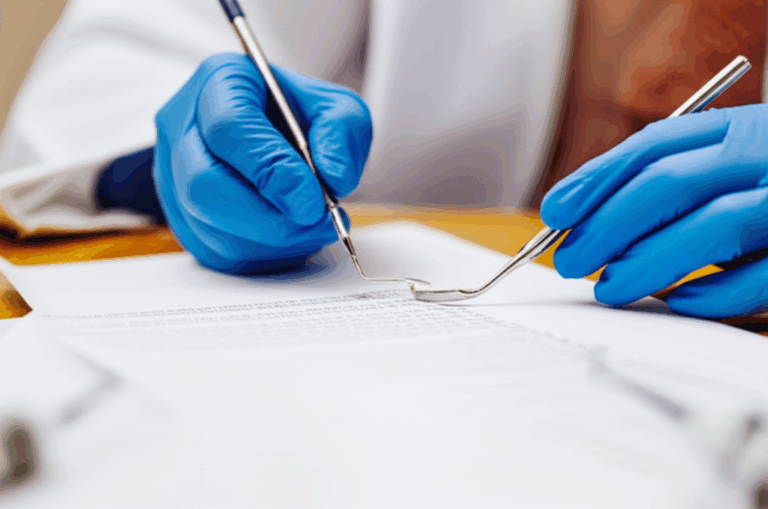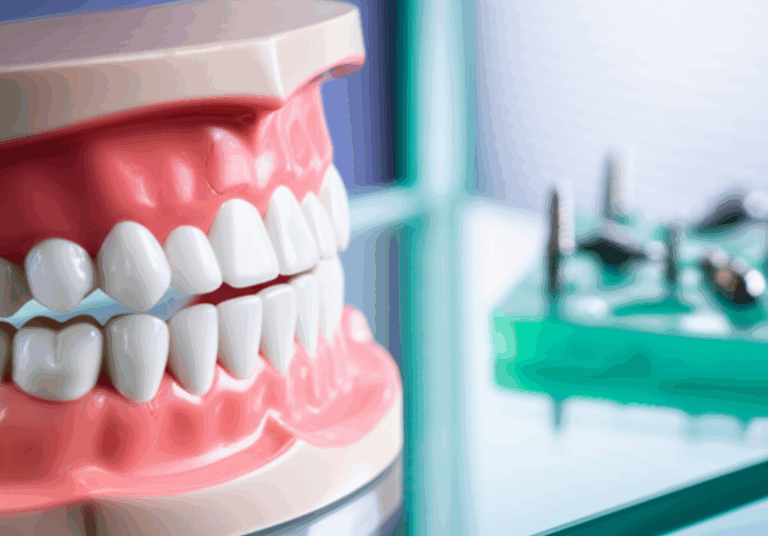
How to Work as a Foreign Dentist in Switzerland: My Complete, No‑Fluff Guide
Table of Contents
- Introduction: My Swiss Dental Journey in a Nutshell
- EU/EFTA vs. Non‑EU/EFTA: Know Your Lane Before You Start
- MEBEKO Recognition: The Gate You Must Walk Through
- Language Requirements: B2 or C1, and Why It Matters More Than You Think
- Visas and Work Permits for Non‑EU/EFTA Dentists
- Finding Your First Job: Where I Looked, What Worked, What Didn’t
- Salaries, Taxes, and Cost of Living: Real Numbers, Real Life
- Beyond the Basics: Insurance, CPD, and Opening or Buying a Practice
- Working With Swiss Dental Labs and Digital Workflows
- Challenges I Hit and Practical Tips That Saved Me Time
- Step‑by‑Step Checklist You Can Follow Today
- Final Thoughts: Start Your MEBEKO File This Week
Introduction: My Swiss Dental Journey in a Nutshell
I moved to Switzerland with a simple goal. I wanted to work as a dentist at a high standard in a country known for accuracy, safety, and good quality of life. The process surprised me. It was clear and organized. It was also slow sometimes, detailed, and you had to know the language. Three groups matter a lot. MEBEKO under the Federal Office of Public Health (FOPH), cantonal health authorities, and the Swiss Dental Association (SSO).
If you’re an EU/EFTA dentist, your path is quicker because of special agreements. If you studied outside the EU/EFTA you need more patience and a thicker folder of documents. Both ways can work. Both need a recognized diploma, the right language, and either registration or a work permit. I’ll show you every step with the facts I used, the papers I gathered, the timelines I followed, and the mistakes I made.
EU/EFTA vs. Non‑EU/EFTA: Know Your Lane Before You Start
First choice isn’t yours. It’s about your passport and your degree.
- EU/EFTA citizens with EU/EFTA dental diplomas: You get help from Switzerland–EU agreements. MEBEKO uses rules similar to Directive 2005/36/EC. You must still send a full application. It’s usually simple if your diploma fits EU standards and your classes cover enough hours.
- Non‑EU/EFTA citizens and/or non‑EU diplomas: Your path is there, but it has more steps. MEBEKO checks if your studies match Swiss standards under the Medical Professions Act (MedBG). You might get full recognition, or get “conditional” recognition, where you must do more training or pass a test. To get a work permit you need an employer to support you and show nobody from Switzerland or the EU wanted the job.
I learned to look at my status early. It affects how long things take, language you need for work, work permits, and where to apply.
MEBEKO Recognition: The Gate You Must Walk Through
MEBEKO is the group that agrees on foreign dental degrees in Switzerland. You can’t work alone without their “yes” letter.
What MEBEKO Looks For
- The place you studied and the program must be real and similar to Swiss standards
- Your dental classes and credits must be about the same as in Switzerland
- Your hands-on practice must match what Swiss dentists can do
- You have a current certificate showing you’re allowed to work as a dentist
- Your papers are official, certified, and if needed, translated
My Document Checklist
I made a tidy, organised file with tabs. It actually made my life easier:
- Copy of passport
- Dental diploma and final certificate
- Detailed list of courses with credits or hours
- Official description of your study program, with hours and what you learned
- Certificate of good standing from your dental board or group
- Work experience letters from clinics, with dates and what you did
- Internship or specialist training certificates if you did them
- Language certificates if you have them
- CV with correct dates and jobs
- Proof of any name changes
- Notarized copies and official translations into German, French, or Italian based on canton
Tip: Use sworn translations with a translator’s stamp. Keep originals safe and send certified copies when you can.
Submission, Fees, and Timing
- Submission: Mail your package to MEBEKO with the form
- Fees: Expect about CHF 800 to CHF 1,000 for basic cases. Tricky cases cost more
- Time: Plan for 3 to 6 months. For non-EU degrees or if files are missing, could be 9 to 12 months
While waiting, I set myself jobs to finish: took language tests, asked for observer spots at clinics. It helped fill the waiting time.
Outcomes I’ve Seen
- Full recognition: You get to register and work in your canton if you match their rules
- Conditional recognition: You might have to do supervised work in a university clinic or pass a test to cover weak spots
- Rejection: Rare if you trained in the EU. More likely if your degree is from outside the EU and very different from Swiss training
Example: My friend with German dental training and good C1 German got recognized in four months and started work in Bern soon after. A non-EU friend went through a three-month extra course in a university hospital and after passing her B2 German, got a job in St. Gallen.
Language Requirements: B2 or C1, and Why It Matters More Than You Think
Switzerland speaks German, French, or Italian, depending on where you are. The language matters for talking to patients, writing reports, and all daily work. It’s not just a box to tick; it’s key for trust and understanding.
- Needed level: B2 to C1 in the local language. Many clinics want C1 for jobs with patients
- Certificates: German—Goethe or telc; French—DELF/DALF; Italian—CILS or CELI
I checked job ads before choosing which language exam to take. Zurich wants German C1. Geneva often wants French C1. Ticino may want Italian B2 or C1. I took a course for dentists to practice talking to patients and writing notes. It helped big time for interviews, including role plays of emergencies.
Having real language proof makes hiring faster. If you don’t need lots of help with language, clinics trust you more from day one.
Visas and Work Permits for Non‑EU/EFTA Dentists
If you’re from outside the EU/EFTA you need two things. First, MEBEKO approval. Second, a work permit. Switzerland has a set number of permits for people from outside the EU and prefers skilled jobs. Dentists fit this rule. The State Secretariat for Migration (SEM) sets the rules and the local canton office follows them.
Permit Types
- L permit: Temporary, short-term residence linked to a short job
- B permit: More steady, longer term residence with a longer job contract
- C permit: Permanent after some years in Switzerland and if you fit other rules
How It Went For Me
- Get a job offer. Employer sends in the work permit application to the canton
- The employer shows they couldn’t find a Swiss/EU dentist for the job
- You send your documents to the Swiss embassy for the visa (if you’re outside Switzerland)
- You arrive after getting a “yes” and register in your local town office
Keep your documents ready for HR: passport, diplomas, MEBEKO letter, language proof, CV, references. Moving fast and being prepared helps clinics choose you.
Finding Your First Job: Where I Looked, What Worked, What Didn’t
Dentist jobs in Switzerland need you to be clear and honest. Clinics want to know what you can do today and how you will learn next year. Specialists (like orthodontics, endodontics, periodontics, prosthodontics, and oral surgery) find jobs faster. General dentists still get jobs if they have good language and solid skills.
Where I Searched
- Job boards: Jobup.ch, Indeed.ch, LinkedIn (set to Switzerland)
- Professional groups: SSO and local dental groups post jobs too
- Recruiters: Healthcare agencies that understand Swiss clinics
- I wrote emails straight to clinics in Zurich, Geneva, Bern, Lausanne, and Basel with a cover letter and a Swiss-style CV
Every canton feels like its own small job market. Big cities are more competitive. Rural areas give you more chances if you meet their language needs.
Swiss‑Style CV and Cover Letter
- 1–2 pages, clear sections
- Show your language levels and certificates
- List your jobs skills, examples: root canals on molars, removing teeth, clear braces, fillings with rubber dam, fits implants
- Add extra courses you’ve done, with hours
- Simple, easy to read; no photo needed unless they ask
Interviews and Trials
Swiss clinics like to ask practical questions in interviews. I showed some cases, talked about a problem I once had, and how I fixed it. I explained how I talk to patients about risks. Trials matter. I took them seriously, showed I used rubber dam the right way, and wrote notes in the right language. Clinics trust you when they see your work.
Where Observerships Helped
If you’re waiting for MEBEKO or your language exam, ask for observer spots in a university or private clinic. You’ll see the software, the billing system, and how they keep things clean. You’ll also meet people who can help you get a job later. Sometimes all you need is one good contact.
Salaries, Taxes, and Cost of Living: Real Numbers, Real Life
Switzerland pays dentists well. But it’s expensive to live there. I made a simple budget before moving, so I could ask for what I needed in my first contract.
Salaries I Saw
- Regular dentist, working for someone: CHF 100,000 to CHF 180,000 gross per year, depends on experience and canton
- Specialists: CHF 150,000 to CHF 300,000 or more, because they are needed more
- As an associate: Usually a base salary plus part of what you make for the clinic. Ask about lab fees and how expenses are split
Cities like Zurich, Geneva, Lausanne pay a bit more, but rent and insurance cost more too.
Social Charges and Taxes
- Social security: You and your boss both pay into this (AHV/IV/EO)
- Pension fund: Money set aside for when you retire (BVG)
- Accident insurance: Must have if you work
- Health insurance: You pick your private provider, but it’s required
- Income tax: Changes by canton and even town
I met an accountant early. It was a good idea. They helped me pick the best health insurance and explained how income taxes work for new arrivals. Fewer surprises later.
Cost of Living Basics
- One-bedroom rent in Zurich or Geneva: CHF 1,500–3,000+
- Health insurance per adult per month: CHF 250–500+ based on deductible and canton
- Travel: Annual or local passes save you money if you travel a lot
- Food and childcare: Plan for Swiss prices! Quality is great but you feel it
I set aside savings for six months before moving. That helped me not stress about finding a job or finishing language courses fast.
Beyond the Basics: Insurance, CPD, and Opening or Buying a Practice
Working as a dentist in Switzerland means you keep learning. Patients expect it. The government checks for it.
Professional Indemnity Insurance
You must have insurance to cover mistakes before you treat patients. Employers need proof. If you are self-employed, shop around to meet your specialty and canton needs.
Continuing Professional Development
The SSO wants you to keep taking courses, and some cantons require it. Write down each course. Pick ones that match the work you do. For example: new endo tools, gum treatments, clear aligners with good bite planning.
Opening or Buying a Practice
You can do it, but it’s a long path.
- Know the canton: Rules change by place. You might need special okay to open or buy a clinic
- Loans and credit scores: Banks check if you have a good record. The Central Credit Information Office (ZEK) checks your details
- Business plan: Make a simple plan—how patients will come, hours, what services, what’s your price list
- Registration: Register the new clinic and let the canton health office know
- Staff: Dental assistants in Switzerland are well-trained. A good assistant saves your day
Buying into an existing practice is sometimes easier than starting from nothing. But check everything first so there are no hidden problems.
Working With Swiss Dental Labs and Digital Workflows
Swiss dentistry likes things to be exact. Your dental lab partners decide how good your crowns, bridges, or dentures turn out. Build good ties early and learn local ways for sending and getting work.
- Digital workflows: More clinics use digital scanners now. If your clinic does digital, working with a digital dental lab keeps things smooth.
- Implant prosthetics: For implants, you must work closely with the lab for best fit, parts, and keeping everything safe. It helps to have an implant dental laboratory that understands the technical bits.
- Ceramics and looks: For front teeth, a good dental ceramics lab helps pick the right color and finish.
- 3D printing: For guides, bite guards, or quick temporary crowns, look for a lab that does 3D printing fast with Swiss rules in mind.
When I worked with labs, I kept my notes simple and used lots of pictures—full face, smile, bite, shade notes. It made sending cases easier and I got fewer questions back.
Challenges I Hit and Practical Tips That Saved Me Time
You’ll find snags. I did. Here’s what I wish I knew sooner:
- Paperwork: MEBEKO wants every box ticked. Make your file super organized. Tabs, labels, certified translations.
- Language: Go for C1 if you can. B2 gets a foot in the door, but C1 makes things smoother.
- Swiss work style: Be on time, be clear, stay calm. Arrive five minutes early. Say your plan and your back-up.
- Job market: Big cities are full for general dentists. Rural areas have more jobs if you fit their needs.
- Networking: Go to SSO and local meetings. Real talks with people can speed up your job hunt a lot.
- Observerships: Give back. If you can, offer to lead a quick demo or training at your observer clinic. They’ll remember.
- Niche skills: If you have a special skill (like tough tooth removal, retreatment under a microscope, clear aligners for tough cases), mention it. You’ll stand out.
- Interview trials: Practice using clinic software you see in ads—Romexis, Sidexis, etc.
- Documents: Always have extra certified copies. Cantons and embassies sometimes demand originals.
- Be patient: Sometimes things go slow. Focus on what you can do—language, clinical skill, network.
Step‑by‑Step Checklist You Can Follow Today
My playbook—almost word for word—was stuck on my wall:
- Are you an EU/EFTA or not? What’s your diploma?
- Where do you want to live? Zurich, Geneva, Bern, Vaud, Basel, or somewhere else?
- Pick your language and book a B2–C1 course for dentists.
- Gather all certificates, class lists, and proof you can work
- Notarize and translate what’s needed
- Fill out the form and pay the fee
- Mail it, plan for 3–6 months
- Swiss-style CV and cover letter
- Line up references and certificates
- Ask for observer spots at a clinic or university
- Use Jobup.ch, Indeed.ch, LinkedIn
- Contact SSO and local dental groups
- Talk to healthcare recruiters
- Mail clinics directly in your target areas
- Take tests (Goethe, DELF/DALF, CILS/CELI)
- Add your language certificate to every job application
- EU/EFTA: Register with the canton once approved
- Non‑EU/EFTA: Get a job, let the clinic apply for your permit
- Arrive and register with your town
- Buy liability/professional insurance
- Pick health insurance in your first weeks
- Learn about social security and pensions
- Note your completed courses, join SSO
- Build a good connection with a dental lab
- Maybe plan to own a clinic one day
Final Thoughts: Start Your MEBEKO File This Week
Switzerland rewards careful planning and effort. It’s not fast, but it works. Start your MEBEKO file this week, book a language test, call one clinic about observing. That’s what starts the ball rolling.
In short:
- MEBEKO and FOPH approval is a must
- Language (B2 or C1) makes the biggest difference for work and trust
- EU/EFTA dentists move quicker; non‑EU needs more documents and an employer
- Pay is high, but prices are too—make a budget with taxes in mind
- Networking matters—a real conversation helps more than any job board
You have your map. Print the checklist and set two dates—mail to MEBEKO and book your first language test. That’s how you get started.
—
Clinical and legal advice in this guide matches current Swiss rules from FOPH, MEBEKO, SEM, and the SSO. This is based on my real times, normal fees, and what it takes for dentists from other countries to work in Switzerland.








